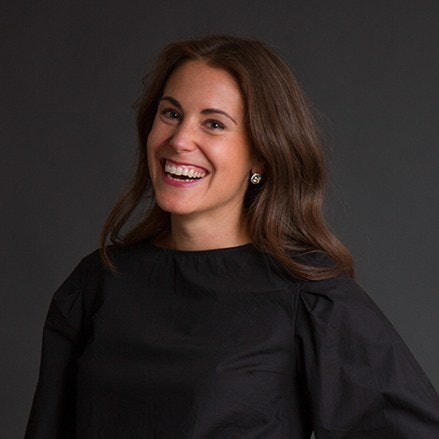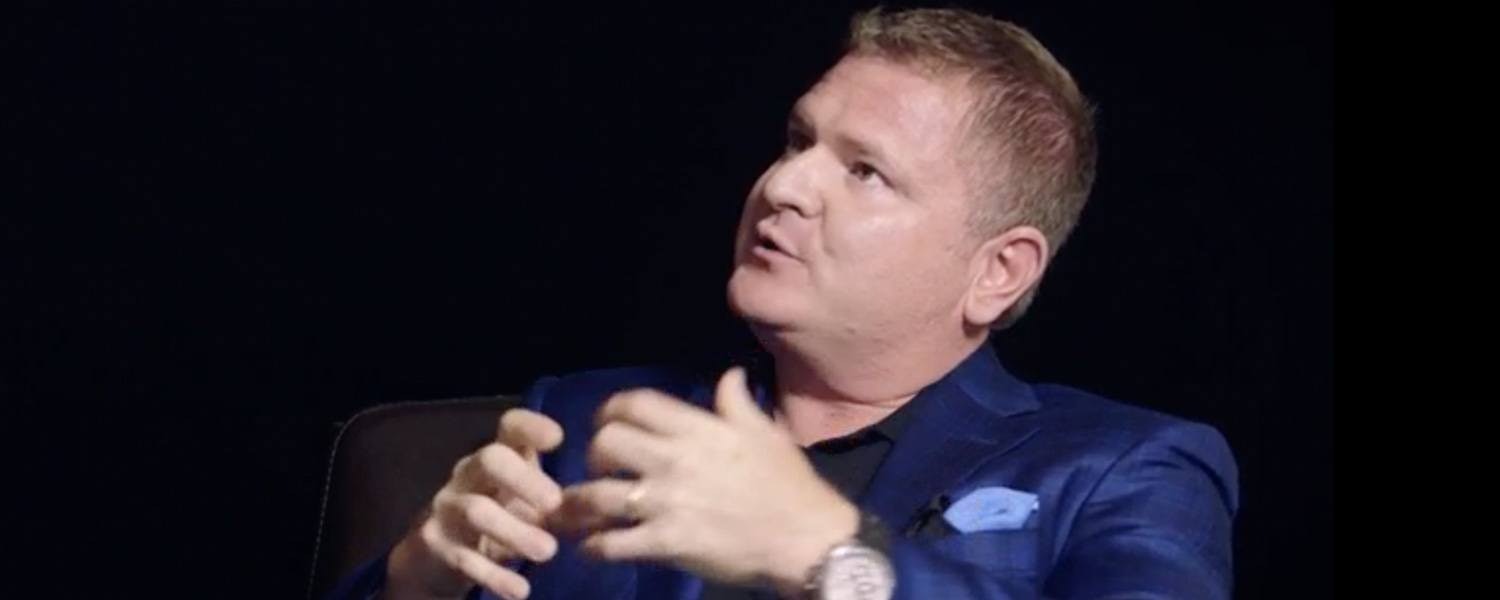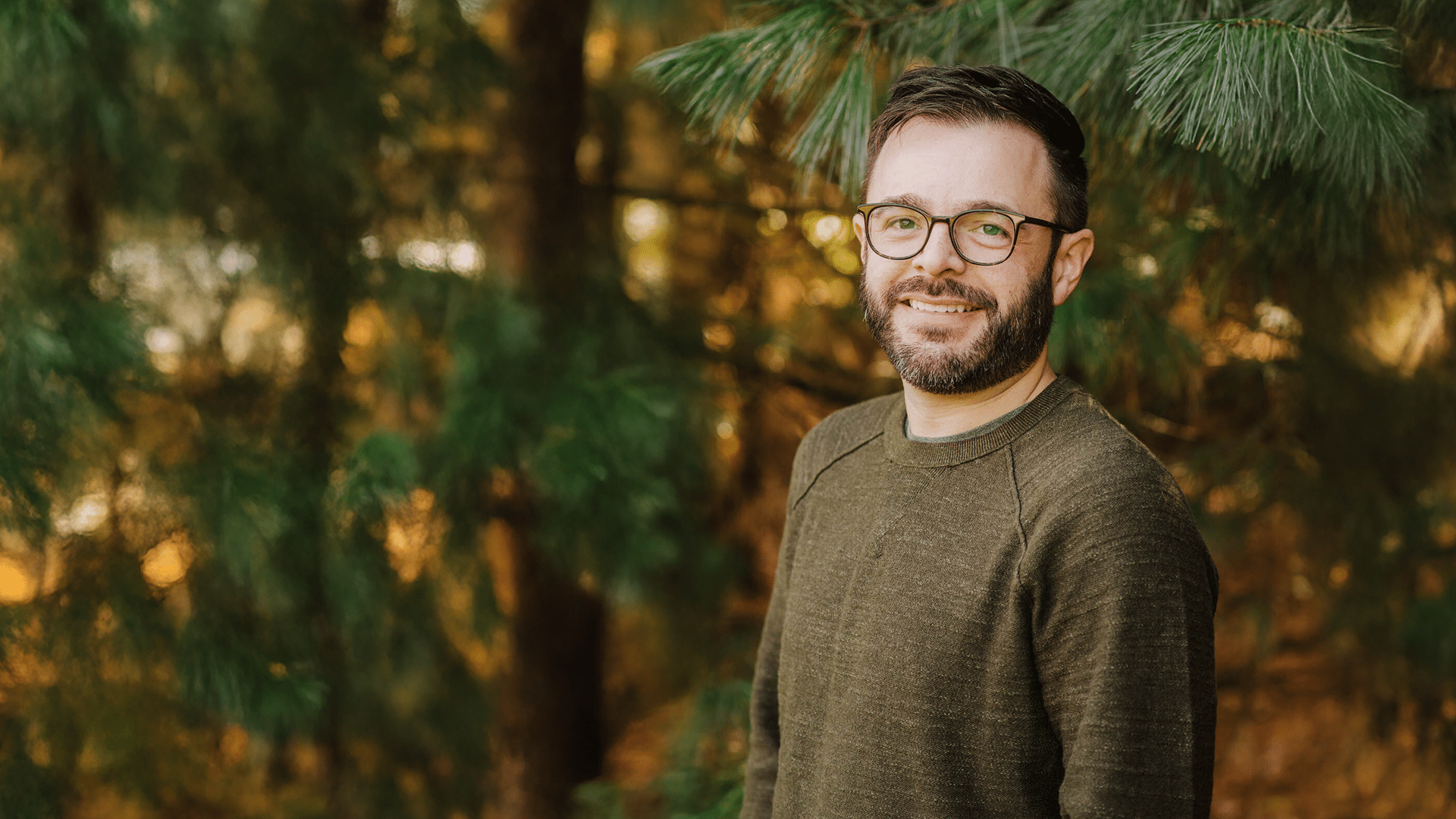In the last of my four-part executive interview series with Hyde Park Ventures VC investor Tim Kopp, the former ExactTarget CMO and I discuss how to ensure you’re achieving the same kind of success in your personal life that you’re pursuing in your career and the relevance of “work-life balance” in the modern work environment. This part of the interview might have been my favorite, and while I did my best to select my top takeaways from it, I’d encourage you to listen to/watch it in its entirety, as it’s chock-full of valuable information for up-and-coming young professionals and business executives alike.
Don’t miss the rest of my interview with Tim:
- Part 1: Tim Kopp on Leadership
- Part 2: Tim Kopp on Employer Branding
- Part 3: Tim Kopp on Balancing Brand and Demand Generation
Listen
My Top Six Takeaways from Our Interview:
1. Approach your family/personal life with the same intentionality you bring to your job.
“It struck me that, you know, of all the companies I worked at, I would think nothing of going to a weeklong offsite or a three-day offsite to define what our plans were for the year. And then I thought, ‘Oh my gosh, as a family that’s going to have an even more eternal impact than anything, I’m being really lazy and unintentional. I think I have a plan, but certainly I haven’t put a tenth of the work into it that I did on the professional side. Why?’
I actually just tried to apply the same [process]. It’s not so much that you go through the exact exercise, and you hang it on a wall, and you look at it, and you frame your mission statement. But I did try to go through:
- What’s our mission statement?
- What are our three to five priorities for the year?
- What are the things that we’re not going to do as a result of those being priorities?
- And then how do we get everybody on the same page with it?
It’s important to go back and touch on strategy [with your significant other]. Because if you’re not both shooting for the same thing in life, it’s really hard. So I think that’s where driving these hard conversations of, ‘What are we about, what are we not about, what do we want to focus on, and how do we get on the same page?’ come into play. And then just make sure to over-communicate like crazy.
I think, ironically, these are the same things that make you very successful in business. But for some reason, people think they need to come home, take off their work hat, and put on their personal hat and change this and change that. It should just all blend together.”
2. Be comfortable saying no to opportunities. Behind a no is often a better yes.
“One of the things I’ve done now is I’ve tried to be really clear on, ‘What are my priorities, not as a business leader, but as a human?’ It’s something I go through with my wife and my family. Asking ourselves, ‘What are our core things? What are we going to be about?’
There’s this book called Essentialism I read last year that had a massive impact on me. If I had to summarize the whole book, and if you want to save the time, if it’s not a hell yes, it’s a no. When you have a scarcity mindset, you think, ‘Boy, if I don’t take this opportunity, it may not come along again. If I don’t take this, I’m fearful that the opportunity won’t come back up again, or I’ll be missing out on something if I don’t do it.’ And a lot of times it’s just not true. Better things continue to come up. And behind a ‘no’ is often a better ‘yes.’
You know, unfortunately, that can mean saying no to nine out of ten things, and sometimes it’s a ‘no’ for now. But for the things that I’m a ‘yes’ in, I’m an all-in ‘yes’ on, and I’m 100% committed to those, and I make them work, and I make them successful. I think that’s better than giving 1% of your time to a hundred things and just not feeling good about it.”
3. Work-life balance is dead.
“When people ask me about work-life balance, I don’t know exactly the right word, but I’ve just given up on it because the two go together. Some people might have an 8-to-5 job. I just don’t think there are many of those. Everything just bleeds together now.
The most respected business leaders are those that have success in their careers and in their lives at home. You can’t act one way and then go home and take off a hat and you’re a different way…life is going to be busy for everybody. Everybody has the same amount of hours in the day. Nobody’s any more blessed with time than anybody else…So how do you want to spend those [hours]? What contentment do you have with how you’re spending them?
Honestly, just quit doing some of the things you don’t like to do and find a way to do more of the things you do like to do. Sure, life’s not that easy; you’ve got to do some things you don’t want to do, but sometimes it can be that easy, but we just get stuck.”
4. Find the people who are comfortable enough to call you out on your BS.
“The further you progress in life and in your career, it’s important to get people who can call BS on you. Because a lot of people will start to tell you things you want to hear, and you have to have people who know you pretty well, and you give them permission to speak truth in your life. ‘You know what, you’re off track,’ or ‘You’re acting—you say you’re about these things, and you’re not.’
It’s not fun. I don’t like hearing that. I’d like to hear I’m pretty open to that input, and I can still be better, but I at least try to be intentional about seeking out feedback when I’m off track and giving people permission to say, ‘You know what, you might think about this differently.’ Don’t surround yourself with yes people.
Define the core three-to-five things you want to be about and share them with other people so they actually hold you accountable to those things.”
5. To differentiate yourself in your career and in life, you need to understand your purpose.
“I was at P&G, and the way that you’re supposed to move at P&G is this very linear sort of career path. You come in as an Ivy League grad. I couldn’t have gone to an Ivy League school, so I didn’t do that, but I came in anyway. So the question I had to ask myself is, ‘What’s going to set me apart? What’s going to make me different?’
If I would’ve just tried to stay exactly with the crowd, I think I would have been a fine brand manager, and I’d probably still be sitting there as a marketing director because I think a lot of people can do that job. [Differentiating yourself] is more about understanding, at a very high level, why were you created? Understanding your purpose and what you were uniquely designed to do that nobody else can do. And then actually just being very comfortable with that.
I know what my strengths are. I know what my weaknesses are. I wish I didn’t have some of my weaknesses, but they are what they are. Success is knowing who you are, what you were designed to do, what you were created to do, and then just seeking those opportunities out as much as you can with an abundant mindset.
6. Once you’re able to focus on priorities beyond your own achievements, help other people understand what they’re good at.
“I’m at the point, to be totally candid, where I’ve achieved far more than I’ve ever thought I would achieve. I still love to hit achievements; we all do. You have to feel successful. But I do truly take more pride in watching other people in my coaching tree or with whom I’ve worked hit big accomplishments. You start to feel more like a parent, I guess, in watching other people soar and hit their full potential. As I came to realize that, it’s like, ‘Wow! I need to spend more time just appreciating that and helping other people be great.’
I think the same thing from a family standpoint. It’s the same thing there. Achievements are great, a GPA is great, getting through a particular college is great, all those things are great, but it’s more just about hitting your full potential and making others around you better.
Help other people understand what they’re good at and live their lives with peace and contentment and be great at that. Whatever that looks like for them, help people find their lanes and be successful in their lanes.”
—
Transcript
Tiffany: So I’d like to switch a little bit to Tim, the human, if we can do that. As I look at your resume and some of your experience, the word that comes to mind for me is “pioneer”.
Tim: Oh, good.
Tiffany: Is that something – like do you identify with that word? What would you say? And I, again, from an outsider’s perspective looks like someone who is really comfortable, finds adventure in the unknown. Would you say that’s pretty on point for you?
Tim: Yes.
Tiffany: I guess I’d like to know what were some of the experiences, from your childhood or elsewhere, that got you to the place where you said, “I could just naturally run toward this and not lose confidence in really cloudy spaces.”
Tim: Yeah. I think it is a word that resonates with me. And any time you take one of these strengthsfinders, it’s ironically one of the words that jump out the most. I can’t say I set out to be a pioneer in any way. It’s not like I set out and that was the dream I had to achieve.
But I do get restless with things pretty quickly. I get bored with things pretty quickly (LAUGHS), which probably helps with some of that. Some ADD tendencies probably drive some of it, too. But I think a lot of it is just being very comfortable with who you are.
So for example, I was at P&G, and the way that you’re supposed to move at P&G is this very linear sort of career path. You come in as an Ivy League grad. I couldn’t have gone to an Ivy League school, so I didn’t do that, but I came in any way. So the question I had to ask myself is, “What’s going to set me apart? What’s going to make me different?”
If I would’ve just tried to stay exactly with the crowd, I think I would have been a fine brand manager, and I’d probably still be sitting there as a marketing director because I think a lot of people can do that job. [Differentiating yourself] is more about understanding, at a very high level, why were you created? Understanding your purpose and what you were uniquely designed to do that nobody else can do. And then actually just being very comfortable with that.
I know what my strengths are. I know what my weaknesses are. I wish I didn’t have some of my weaknesses but they are what they are. Success is knowing who you are, what you were designed to do, what you were created to do, and then just seeking those opportunities out as much as you can with an abundant mindset.
I do think a massive amount of curiosity goes into it. One of the things I’ve been fairly fortunate [to be good at] is figuring out trends before they’re quite there like getting into digital marketing very early. When you can figure out the right trend and how to get to the right place, you don’t necessarily have to be the best at it; you’re just better at it than anybody else because you’ve been doing it a little bit longer.
The reason I was able, I think, to become a VP at Coke when I was young is they were looking for somebody with seven years of CPG digital marketing experience. I bet there were six of us, right? (LAUGHS). There weren’t 6,000 of us to pick from.
Tiffany: Right.
Tim: So for me, [success] has been understanding the macro trends and then understanding SaaS / software-as-a-service was coming and the importance of marketing within SaaS. I was fortunate enough to be there for SaaS, and now I think the same is happening with venture in the Midwest. I do think a number of the people in Indianapolis, Cincinnati, Ann Arbor, Chicago…the entrepreneurs in the companies here are every bit as good as the companies on the West Coast and the East Coast. Pound-for-pound, there’s no question they’re every bit as good, if not better. How do we help unleash the full potential of those companies with the right set of capital and entrepreneurship? So I hope I’m on the right end of that next 10-year trend.
Tiffany: Very cool. My next question was going to be what your superpower is. And I’m hearing it be able to be out in front of where the inertia is going to be, where there’s already a sense of energy and momentum, and being able to put yourself there.
Tim: Probably that, and to recruit people who are better than me, and just really good people. I’ve just been fortunate to work with a really, really good set of people. So I think it’s the intersection of those two.
Tiffany: Really cool. So my last question is going to be in two parts. For someone who has a pattern of success, there are a lot of things and people who want to pull you into what they’re doing, whether it be investing in the community in a not-for-profit sense or investing in young talent. You’re involved in a bunch of different portfolio companies. You have a job with Hyde Park Venture Partners. You have relationships and network and travel and family.
How have you thought through the prioritization of things, knowing there’s a place where there’s an abundance opportunity and being able to be discerning in what gets done. You’re probably at a place where money is a more abundant resource than time. And so how do you be discerning with your most scarce resource, time, and what do you put that toward.
Tim: Yeah. A lot of trial-and-error. I’m still trying to figure it out. I think the only way to really figure this out is to screw it up.
Tiffany: I wish the answer was different than that. (LAUGHS)
Tim: Yeah. And then as you screw up, a lot of it ends up becoming intentionality and follow through. One of the things I’ve done now is I’ve tried to be really clear on, “What are my priorities, not as a business leader, but as a human?” It’s something I go through with my wife and my family. Asking ourselves, “What are our core things? What are we going to be about?”
There’s this book called Essentialism that I read last year that had a massive impact on me. If I had to summarize the whole book, and if you want to save the time, if it’s not a hell yes, it’s a no. When you have a scarcity mindset, you think, “Boy, if I don’t take this opportunity, it may not come along again. If I don’t take this, I’m fearful that the opportunity won’t come back up again, or I’ll be missing out on something if I don’t do it.” And a lot of times it’s just not true. Better things continue to come up. And behind a “no” is often a better “yes”.
You know, unfortunately, that can mean saying no to 9-out-of-10 things, and sometimes it’s a “no” for now. But for the things that I’m a “yes” in, I’m an all-in “yes” on, and I’m 100% committed to those, and I make them work, and I make them successful. I think that’s better than giving 1% of your time to a hundred things and just not feeling good about it.
So it’s getting comfortable. I think the reason I’ve personally dialed back on social media a lot, too, is it can drive this mindset that I’m missing out on something. Everybody’s out, they’re at a game, they’re doing this, they’re doing that. But sitting right at your dinner table with your family might be exactly where I’m supposed to be. And just being very content and happy in those moments is important.
I think the further you progress in life and in your career, it’s important to get people who can call BS on you. Because a lot of people will start to tell you things you want to hear, and you have to have people who know you pretty well, and you give them permission to speak truth in your life. “You know what, you’re off track,” or “You’re acting – you say you’re about these things, and you’re not.”
It’s not fun. I don’t like hearing that. I’d like to hear I’m pretty open to that input, and I can still be better, but I at least try to be intentional about seeking out feedback when I’m off track and giving people permission to say, “You know what, you might think about this differently.” Don’t surround yourself with yes people.
Define the core three-to-five things you want to be about and share them with other people so they actually hold you accountable to those things.
Health and wellness became a major thing that was important going into this year for me. And I’ve committed to it, publically. Because then you’re too embarrassed if you don’t make it work, right? (LAUGHS)
So you have to define what you’re about, feel comfortable sharing it with other people, and have others call BS on you when it doesn’t work. By no means do I have it all figured out. It’s constant juggling.
Tiffany: You talked a little bit about creating intentionality and goals. Is there a formal process that you go through with your wife and kids to say, “What’s the year look like for us?”
Tim: There is now. It struck me that, you know, of all the companies I worked at, I would think nothing of going to a weeklong offsite or a three-day offsite to define what the plans were for the year. And then I thought, “Oh my gosh, as a family that’s going to have an even more eternal impact than anything, I’m being really lazy and unintentional. I think I have a plan, but certainly I haven’t put a tenth of the work into it that I did on the professional side. Why?”
I actually just tried to apply the same [process]. It’s not so much that you go through the exact exercise, and you hang it on a wall, and you look at it, and you frame your mission statement. But I did try to go through:
- What’s our mission statement?
- What are our three to five priorities for the year?
- What are the things that we’re not going to do as a result of those being priorities?
- And then how do we get everybody on the same page with it?
That wasn’t perfect. But just that exercise of intentionality, mission statement, core things we’re about, what we’re not about, and then getting alignment is something I wish I did sooner.
Tiffany: That’s really cool. If it’s OK for me to ask, what are things you and your wife do just to stay connected? Many of us are trying to do big things in lots of area of our lives, and our marriages can often become the leftover piece of it if we’re not intentional about really keeping that in the center of it all. So I’d be curious to know what you do from that perspective, too?
Tim: Over-communicate like crazy. I think sometimes people get more upset at symptoms than they are at root causes. For example, if you’re on vacation, and you’re checking your phone, some spouses may get upset, some won’t. We have a relationship now where we don’t. For me, I’m better off if I just check-in on things, and I know what’s working, and I know what’s not working. But at a certain point, she’d say, “Look, you’ve been on your phone enough. Give me the phone.” Right? (LAUGHS)
A lot of it is just staying relationally connected by over-communicating on what’s important and what’s not important. It’s not what people say that’s going to get you; it’s the things that are unsaid, I think. If you’ve got something to say, just say it. If I’m acting like a clown, just tell me. And then it’s the prioritization of whatever things in life that you want to do, just do together.
So for us, it’s being really intentional that, for all the busyness of life, we’re going to go out two times a week together, no matter what. And we’re just going to do that. Sometimes it might just be a long walk. Sometimes it’s a dinner date.
It’s important to go back and touch on strategy. Because if you’re not both shooting for the same thing in life, it’s really hard. So I think that’s where driving these hard conversations of, “What are we about, what are we not about, what do we want to focus on, and how do we get on the same page?” come into play. And then just make sure to over-communicate like crazy.
I think ironically these are the same things that make you very successful in business. But for some reason, people think they need to come home, take off their work hat, and put on their personal hat and change this and change that. It all blends together so much.
Tiffany: You talk about the structure we live through at work: quarterly cadences, prioritization, accountability to ROCKS, and publishing all these to our staff and leadership team. I think we give ourselves an out because so much of our work lives is structured and highly accountable that we are sloppier in the way that we manage our personal lives.
Tim: It should be the other way.
Tiffany: Yeah.
Tim: Or you can take what you learn in one and apply it to the other. They kind of go together. I think that’s why when people ask me about work-life balance, I don’t know exactly the right word, but I’ve just given up on it because the two go together. Some people might have an 8-to-5 job. I just don’t think there are many of those. Everything just bleeds together now.
Tiffany: Don’t you find, too, that you respect the business leaders who are able to create enormous success in their careers and have the same in their personal lives? I have found that there’s a discernment [in their judgment].
Tim: Yes. It’s the consistency of how they live their lives in both. It’s not that you act one way and then go home and take off a hat and you’re a different way, and it’s the back-and-forth. Life is going to be busy for everybody. Everybody has the same amount of hours in the day. Nobody’s anymore blessed with time than anybody else. We all have the same amount of hours. So how do you want to spend those? What contentment do you have with how you’re spending them?
Honestly, just quit doing some of the things you don’t like to do and find a way to do more of the things you do like to do. Sure, life’s not that easy; you’ve got to do some things you don’t want to do, but sometimes it can be that easy, but we just get stuck.
Tiffany: So my last question is: what impact do you want your life to have had? I was going to ask career, but you have I think very elegantly identified that it’s really not just about one side of Tim. What impact do you want your life to have had?
Tim: When I’ve thought about impact from a career standpoint, I was watching Bill Belichick, who is not my favorite person.
Tiffany: Happens to be a great coach.
Tim: He’s a great coach. And one of the things I admire is his coaching tree. So I’ve thought a lot about what that means to me from a work standpoint.
I’m at the point, to be totally candid, where I’ve achieved far more than I’ve ever thought I would achieve. I still love to hit achievements; we all do. You have to feel successful. But I do truly take more pride in watching other people in my coaching tree or with whom I’ve worked hit big accomplishments. You start to feel more like a parent, I guess, in watching other people soar and hit their full potential. As I came to realize that, it’s like, “Wow! I need to spend more time just appreciating that and helping other people be great.”
I think the same thing from a family standpoint. It’s the same thing there. Achievements are great, a GPA is great, getting through a particular college great, all those things are great, but it’s more just about hitting your full potential and making others around you better.
Help other people understand what they’re good at and live their lives with peace and contentment and be great at that. Whatever that looks like for them, help people find their lanes and be successful in their lanes.
Tiffany: Awesome. Well, thank you, Tim, for your time. Like you said, we all only have 24 hours in a day.
Tim: I wish there was more.
Tiffany: I feel lucky that you spent an hour with me. So thanks, so much. It was great.
Tim: Yeah, you bet. Thank you. Appreciate it.





